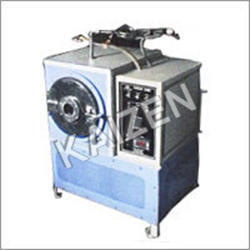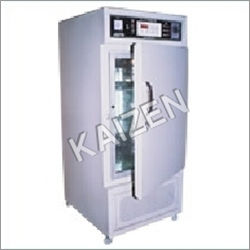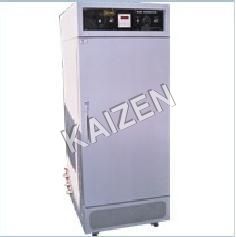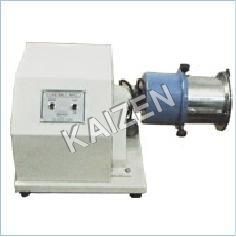
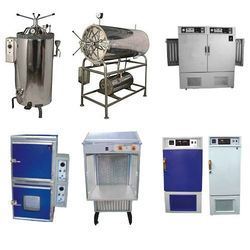
General Laboratory Instruments
Product Details:
- Control Type Digital / Manual
- Features Ergonomic, Rustproof, Easy to Clean
- Power Supply Electric
- Glass Type Borosilicate Glass
- Heating Capacity Up to 1500W
- Shape Rectangular, Cylindrical, Round
- Accuracy 0.1%
- Click to View more
X
General Laboratory Instruments Price And Quantity
General Laboratory Instruments Product Specifications
- 0.1%
- Scientific Laboratories, Research, Education
- LED/LCD Display
- Up to 250C
- Variable / Customizable
- Manual / Automatic General Lab Devices
- Metal, Plastic, Glass
- General Laboratory Instruments
- Ergonomic, Rustproof, Easy to Clean
- Digital / Manual
- Varying by Instrument (up to 20 L)
- Electric
- Borosilicate Glass
- Stainless Steel, Borosilicate Glass, Polypropylene
- Rectangular, Cylindrical, Round
- Up to 1500W
General Laboratory Instruments Trade Information
- Yes
- Sample costs shipping and taxes has to be paid by the buyer
- Australia, Eastern Europe, Africa, Central America, Middle East, South America, Western Europe, Asia, North America
- All India
- ISO Certification, MSME Certificate
Product Description
General Laboratory Instruments
Our expertise and ability enable us to stand among leading manufacturers, suppliers and exporters of General Laboratory Instruments. These instruments are widely used in laboratories for controlling, measuring and regulating flow, pressure, level, temperature and other variables in gas and liquid measurements. Made from the best quality raw materials, these instruments can also be customized as per the specific demands of the customers. These General Laboratory Instruments are known for their below mentioned attributes:
- Optimum functionality
- Low power consumption
- Long service life
- Low maintenance
Range Available :
- Laboratory Incubator
- Laboratory Water Bath
- Shaking Machine
- Deep Freezer
- Seed Germinator
- Heating Mantle
- Distillation Apparatus
- Laboratory Ball Mill
- Memmert Universal Oven
- Vacuum Oven
- Rectangular Muffle Furnace
- Ultrasonic Cleaner Bath
- Vertical Autoclave
- High Vacuum Pump
- Sieve Shaker
- Turbidity Meter
Precision and Compliance for Every Laboratory
Our instruments combine ISO and CE certifications with advanced design, ensuring that each product meets international standards for safety, performance, and reliability. Whether your focus is research, education, or scientific experimentation, our solutions deliver consistent results and robust compliance.
Customizable Options for Diverse Requirements
We offer a variety of materials, shapes, and finish options to meet the diverse needs of laboratory professionals. With variable and customizable dimensions and capacities up to 20 liters, each instrument can be tailored to your specific application, environment, and workflow.
Engineered for Safety and Efficiency
Made from premium stainless steel, borosilicate glass, and resilient plastics, our instruments guarantee durability and chemical resistance. Features such as ergonomic design, digital/manual controls, and easy-clean surfaces ensure both user safety and operational efficiency in demanding laboratory settings.
FAQs of General Laboratory Instruments:
Q: How do I choose the right general laboratory instrument for my specific application?
A: Selecting the right instrument involves considering your laboratorys requirements for capacity, material compatibility, temperature resistance, and type of control (manual or digital). Our team will help you customize shapes, dimensions, and materials to best suit your scientific, educational, or research needs.Q: What compliance certifications do these laboratory instruments have?
A: All our general laboratory instruments are ISO and CE certified, ensuring that they adhere to globally recognized standards for quality, safety, and performance across different research and education environments.Q: When is it necessary to opt for a manual versus an automatic laboratory instrument?
A: Manual instruments are preferred for tasks requiring direct operator control or in environments without reliable power. Automatic instruments suit high-throughput labs where efficiency, accuracy, and minimal intervention are priorities. Both types offer precise performance with customizable options.Q: Where can these instruments be installed and used?
A: Our laboratory instruments are designed for use in scientific laboratories, research facilities, and educational institutions. Their versatile designs and robust materials allow installation on various benchtops, within laboratory workspaces, or in specialized research areas.Q: What is the process for customizing a laboratory instruments dimensions and features?
A: Customization begins with identifying your projects specific needs including capacity, materials, shape, and control type. Our manufacturing team collaborates closely with clients to design and produce instruments that fit custom dimensions and incorporate desired features for optimal utility.Q: How do the materials used in these instruments benefit laboratory operations?
A: Stainless steel, borosilicate glass, and polypropylene ensure chemical resistance, durability, and long-term reliability. These materials also simplify cleaning, reduce the risk of contamination, and withstand harsh laboratory conditions, making them ideal for frequent and varied usage.Q: What maintenance and cleaning practices are recommended for these instruments?
A: We recommend regular cleaning with suitable laboratory detergents and thorough drying, especially for equipment handling chemical or biological samples. Surfaces are crafted to resist rust and staining, while user manuals provide detailed care instructions for each material and instrument type.Tell us about your requirement

Price:
Quantity
Select Unit
- 50
- 100
- 200
- 250
- 500
- 1000+
Additional detail
Mobile number
Email
Other Products in 'General Laboratory Instruments' category
 |
KAIZEN IMPERIAL
All Rights Reserved.(Terms of Use) Developed and Managed by Infocom Network Private Limited. |


